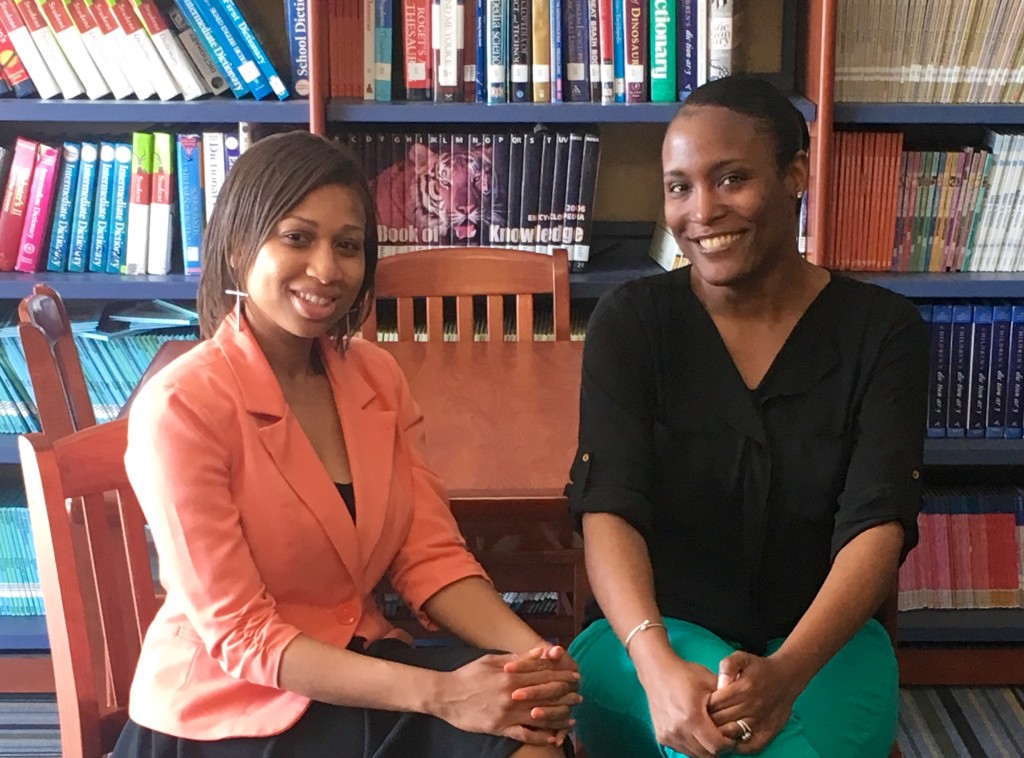June Person of the Month: Christi Venable

Christi Venable poses with Turnaround Social Work Consultant, Jillian Fray-Evans.
Christi Venable is a Mental Health Coordinator at First Home Care, Turnaround for Children’s community mental health partner in Washington, D.C. Nominated as Person of the Month by Social Work Consultant Jillian Fray-Evans, Ms. Venable “works extremely hard to ensure that students in need of clinical services are quickly assessed and serviced” in our partner schools, Houston Elementary and Walker-Jones Education Campus.
THE 180: What inspired you to do this work?
CHRISTI VENABLE: I was a school counselor for about four years before I came on board with First Home Care. It was the next step [in my career], managing community support workers and therapists who have similar roles to what I did as a school counselor.
THE 180: Compared to other schools, do you see a difference in how you work with Walker-Jones Education Campus and Houston Elementary because of the Turnaround partnership?
CHRISTI VENABLE: At Turnaround partner schools, there is a higher level of communication. If we inform the school that we are unable to reach a parent, the school will make a point of speaking with that parent when he/she comes into the school and ensures that the parent and First Home Care connect successfully. That’s one of the main differences – partnership and communication.
THE 180: How are students referred to First Home Care?
CHRISTI VENABLE: Sometimes teachers come straight to us and other times a teacher might go straight to the social worker. But all referrals filter through the mental health team. The team, which is inclusive of social workers, Turnaround and the Department of Behavioral Health therapist (DBH is a government mental health entity which oversees mental health services in Washington, D.C.), meets once a week. We all meet and speak about [each referral]. What are the different behaviors? Is the referral appropriate? If so, we reach out to the family.
THE 180: Do you ever experience resistance from families? If so, how do you handle it?
CHRISTI VENABLE: It depends. Sometimes the family says that they’re not interested in therapists. When that happens, we bring the information back to the school and let them know. If it’s a serious case, we speak with the family about the different behaviors we’re seeing in the child and try to help the family understand that it’s important to get extra support. Usually that will help.
THE 180: Turnaround only started partnering with Houston Elementary last fall. Have you seen any changes in the school environment?
CHRISTI VENABLE: Yes, we’ve seen a big change. I feel like Houston has been a really good success story, even within the short time that Turnaround has been with them. The teachers tell us all the time that they appreciate everything, and they think that it’s really helping. Not only do we provide community support services, but we have a therapist that comes here to the school, and we have a psychiatrist on staff. We can provide the whole gamut of services a child might need.
THE 180: How long does a student usually work with First Home Care?
CHRISTI VENABLE: There isn’t an average because we work with children until they’re able to utilize the skills that we provide them on their own. I’m not saying until the children are perfect – they will have challenges here and there – but we work with them until they can manage their behavior 90 percent of the time. And we still work with kids [who age out or transfer]. We will follow them wherever they go if they want services.
THE 180: What do you see as one of the biggest successes in the relationship between First Home Care and Turnaround?
CHRISTI VENABLE: I think the seamless partnership is a really good success. We all are always on the same page and it makes the job easier. And when I say “we,” I mean Jillian, mostly because she’s the social work consultant. We’re always talking, always working on something together. That helps align us at all times. She always knows what’s going on and I always know what’s going on.
THE 180: What do you think is the most important thing students need to succeed?
CHRISTI VENABLE: There isn’t one thing because we’re unique creatures, and it can vary depending on the child. We help kids that unfortunately deal with a lot of poverty…there’s a lot of trauma exposure. To really help the kids that we work with, the adults in their lives need to understand trauma, what kind of things traumatize children, and how it affects their brain and their behavior.
THE 180: What do think the partnership has meant to the students and the parents of the school?
CHRISTI VENABLE: Our parents very appreciative. We have some parents thinking, “I just don’t know what to do with him” or “I just don’t know how to help him.” And we come in and really try to figure out what’s going on. We work with the parents as well, not only with the students. [We] connect them to resources that we might not provide. Our parents don’t just need the mental health part – they might need housing. We always try to make sure we’re able to get them the things that they need. You can’t successfully help the kid without helping the family.

Share This Story